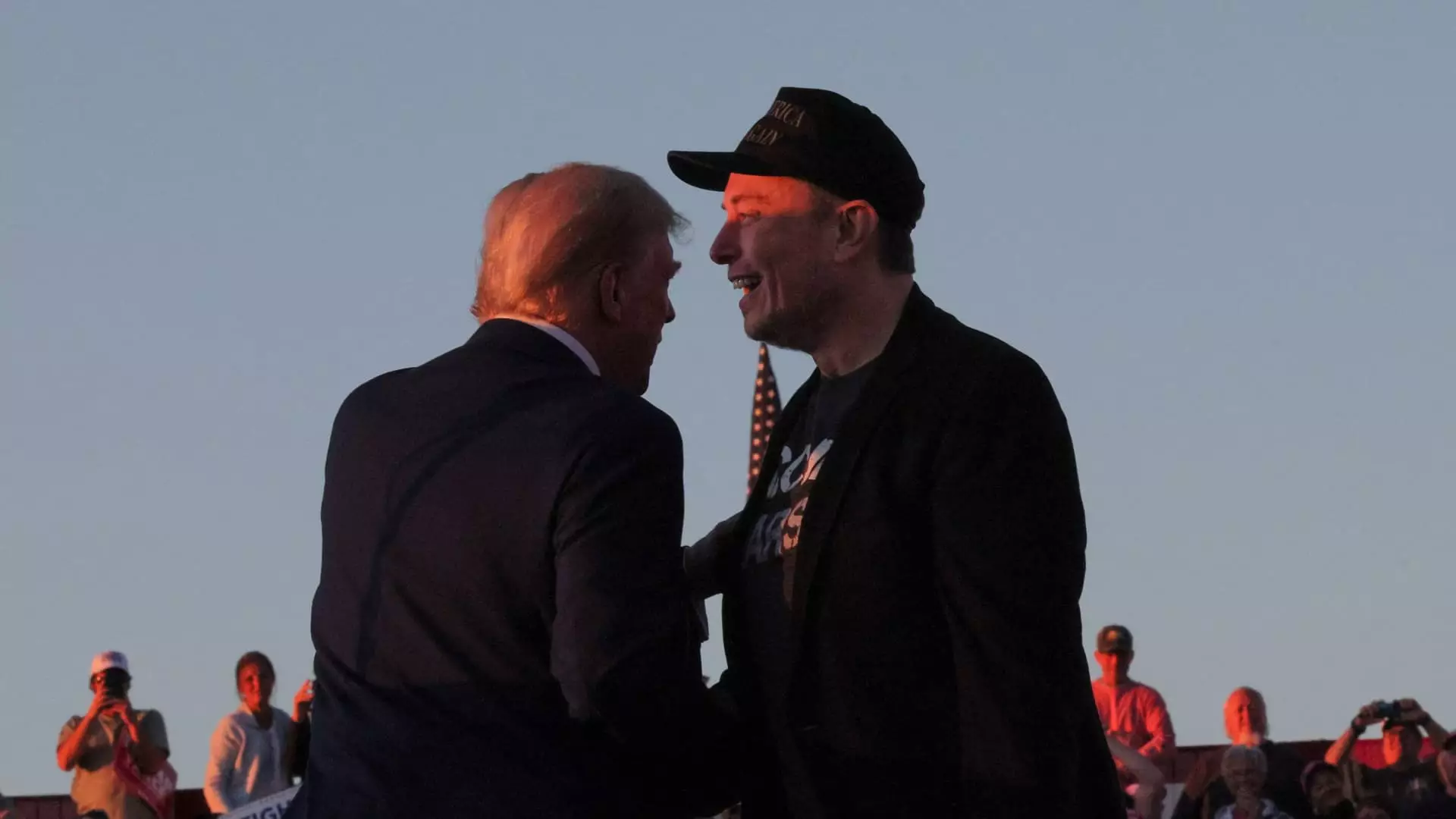As Tesla gears up for its highly anticipated quarterly earnings release, a cacophony of investor concerns reverberates through the forums and discussion boards frequented by shareholders. At the forefront of these worries is none other than Tesla’s enigmatic CEO, Elon Musk, and his political engagements, particularly his supportive stance towards Donald Trump. The intersection of Musk’s personal views and corporate responsibilities has sparked a debate among retail investors, raising a critical question: Is Musk’s political activism a liability for Tesla and its stakeholders?
In an age where social media amplifies voices, Musk’s political expressions on platforms like X have drawn significant scrutiny. Many investors express unease about the apparent dichotomy between Musk’s right to voice his opinions and the expectation for him to safeguard shareholder interests. One investor poignantly articulated this dilemma by questioning how Tesla plans to mitigate any potential negative influence that Musk’s commentary might exert on sales and growth prospects. This sentiment has been echoed widely among shareholders, signifying a larger concern about the impact of political discourse on a brand known for its innovation.
The implications of Musk’s political involvement extend beyond mere public opinion—investors are pondering whether Tesla’s board is taking adequate measures to ensure that Musk’s political activities don’t derail the company’s core mission or undermine its brand integrity. With an astounding number of upvotes on these inquiries, it’s evident that shareholders are increasingly vigilant about the potential consequences of Musk’s politics on the company’s trajectory.
Musk’s portfolio is undeniably vast, encompassing not just Tesla, but also SpaceX, xAI, Neuralink, and The Boring Company, among other ventures. This multi-faceted role could lead to divided attention, raising questions about his ability to effectively steer Tesla amidst his busy schedule. His suggestion to Trump about a “government efficiency commission” aimed at reducing spending and regulatory burdens might resonate with some, but it also risks creating distractions at a time when Tesla needs unwavering focus to fend off emerging competition and maintain investor confidence.
Furthermore, Musk’s recent initiatives, including a speaking tour in Pennsylvania aimed at boosting voter registration, have made headlines but also stirred controversy. The corporate implications of such political maneuvering remain ambiguous; while they may garner favor among certain voter bases, they could alienate others, particularly in an increasingly polarized political landscape.
While quantifying the financial repercussions of Musk’s political stance is complex, some analysts have attempted to connect the dots. Gene Munster, a notable venture capitalist and Tesla enthusiast, posited that the surge in Musk’s political dialogue could correlate with a drop in deliveries, estimating decreases in the range of 5,000 to 10,000 for the quarter. Such figures highlight a critical intersection: shareholder sentiment directly impacting the bottom line.
This hypothesis is particularly alarming given the broader context of a struggling brand valuation. Studies from brand consultancy Interbrand revealed a 9% decline in Tesla’s brand value this year, dropping the automaker to the 12th position behind legacy brands like Toyota and Mercedes-Benz. The challenges Tesla faces in maintaining its competitive edge in the EV market, alongside Musk’s polarizing public persona, suggest that investor concerns may be more than mere rhetoric; they point to a tangible risk to Tesla’s market position.
Tesla’s struggles underscore an evolving automotive landscape where traditional manufacturers are doubling down on electric vehicles and carving out competitive advantages. While Tesla remains the pioneer within the EV sector, the company’s product lineup, which includes aging models like the Model 3 and Model Y, is now facing scrutiny. New entrants are raising the bar with advanced offerings, and this market saturation might be compounded by perceptions of uncertainty surrounding Musk’s leadership.
Moreover, as the top five global brands ranked by Interbrand are all technology leaders that vie for talent with Tesla, Musk’s political engagements may inadvertently distract from the company’s ability to attract top-tier engineers and innovators, vital for sustaining its competitive edge. As Brujo from Interbrand emphasized, a CEO’s alignment with a political entity can be risky; it can polarize potential customers and dilute brand loyalty.
The intertwining of Elon Musk’s political activism and Tesla’s business strategy presents a multi-dimensional challenge for the automaker. As the earnings report looms, investor concerns are likely to catalyze conversations about the sustainability of Musk’s leadership amid a politically charged atmosphere. If Tesla is to navigate these treacherous waters without compromising shareholder value or brand strength, it may need to recalibrate its focus — ensuring that its innovations and growth strategies take precedence over the personal politics of its CEO. The stakes could not be higher, as the future of Tesla hangs in a delicate balance, influenced by both its operations in the rapidly evolving EV market and the unpredictable nature of public perception.

